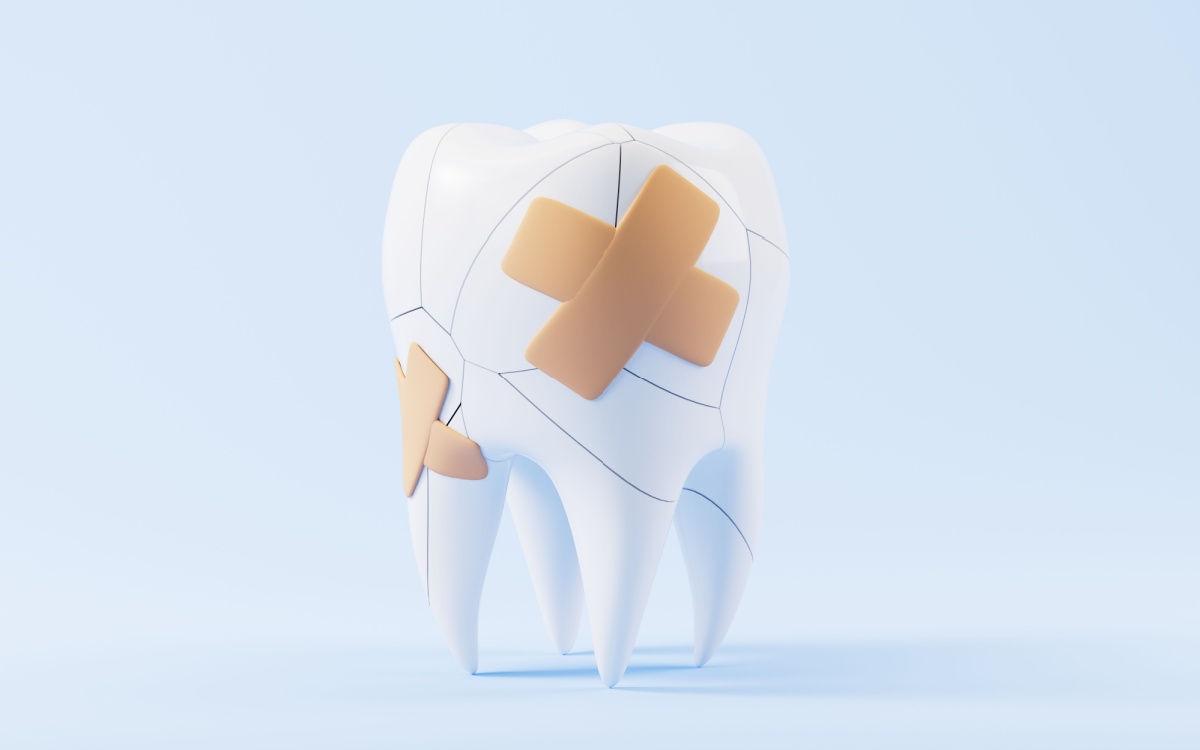Discovering a cracked tooth can send anyone into a moment of panic. Your mind might race with questions: Is this serious? Will I lose my tooth? Can it be fixed? Dental emergencies can be scary, but with the right information and prompt care, most tooth cracks can be effectively managed and treated.
At Hamilton Dental Associates, we believe in empowering our patients with knowledge and providing compassionate, expert care. This guide will walk you through everything you need to know about cracked teeth — from recognizing the first signs to understanding your treatment options. We’re here to turn your dental worry into a clear path forward.
Understanding Tooth Cracks: More Than Just Surface Damage
Cracked teeth are more complex than many people realize. Your tooth enamel, which protects the inner layers of your tooth, can develop cracks due to numerous factors. These may include everything from a bad bite caused by misalignment to injuries from sports or accidents. Some individuals crack teeth biting into hard foods, while others experience temperature changes that cause their natural teeth to expand and contract.
Types of Tooth Fractures
Understanding the different types of tooth cracks is crucial for proper dental care. A minor crack might seem insignificant, but without proper dental treatment, it can lead to more serious complications.
Dental professionals recognize several types of tooth cracks:
- Hairline crack: A minor surface imperfection
- Vertical fractures: More serious cracks extending deeper into the tooth
- Split tooth: A severe crack that significantly divides the tooth
- Fractured cusps: Damage to the chewing surface of the tooth
Each type of tooth crack presents unique challenges. Our dentists will assess the tooth’s condition and determine the most optimal strategy to ensure your long-term oral health.
Signs of a Cracked Tooth
Common symptoms of a cracked tooth include:
- Sharp pain when chewing
- Tooth sensitivity to hot and cold temperatures
- Intermittent tooth discomfort
- Gum inflammation around the affected area
What to Do If Your Tooth Cracks
A cracked tooth isn’t always a complete disaster. Still, fast action and early diagnosis are essential to protect your pearly whites and gums from a tooth abscess, disease-causing bacteria, and other dangers that can occur when a crack is left untreated. If you notice a damaged tooth, remain calm and follow these critical steps:
- Rinse your mouth gently with warm water to clean the area and wash out any food residue (after all, sometimes, there’s a possibility that the noise you heard is not a cracked tooth but rather a corn kernel, seed, or shell that stuck around after your last meal).
- Apply a cold compress to reduce gum swelling.
- Take over-the-counter pain medication (NSAIDs) if needed for tooth pain.
- Avoid chewing on the side with the cracked tooth.
- Contact emergency dentists in Mercer County immediately for an emergency dental exam. Your dental professional will evaluate the damaged or weak tooth and determine the best treatment strategy.
Treatment Options for Cracked Teeth
Your dental specialist can employ multiple strategies to address tooth damage. Here are a few types of professional dental care that target cracked teeth:
Dental Bonding
Dental bonding involves using tooth-colored resin to repair minor cracks in a natural tooth that is cracked but otherwise healthy. It can resolve the physical appearance of a cracked tooth but does not repair damage to the inner layers.
Dental Crown
A cap made from tooth-colored resin or porcelain (“dental crown”) is installed on top of a natural tooth. Crowns are primarily used for protecting and stabilizing a weak tooth.
Root Canal Therapy
Root canal therapy is a treatment for cracked teeth that involves drilling into the broken tooth to remove infected pulp and address significant damage.
Dental Implant Therapy
Typically recommended in cases of total tooth loss, dental implants can be used to replace a damaged tooth root that cannot be saved.
How to Prevent Tooth Cracks
Preventing damaged teeth involves maintaining proper oral hygiene habits and being mindful of potential risks. Here are a few ways to reduce your risk of cracked teeth:
- Wear a mouth guard during sports or if you grind your teeth at night.
- Avoid chewing hard foods aggressively.
- Practice good dental hygiene. Brush your teeth at least twice per day and floss at least once per day. Don’t forget to brush your tongue and along your gum line!
- Visit your dentist regularly. Regular dental examinations ensure long-term oral health and are a great way to spot the symptoms of a cracked tooth before they begin.
Don’t Wait, Take Action
Cracked teeth are serious dental health issues that require professional attention. While natural remedies might seem tempting, they cannot replace comprehensive dental treatments.
Are you experiencing tooth discomfort or suspect a cracked tooth? At Hamilton Dental Associates, our dental specialists are equipped to provide expert care for your tooth problems. Whether you’re dealing with a tooth crack or need an orthodontist in NJ, our professional team is ready to protect your smile and ensure your overall dental health. Schedule an appointment today!







